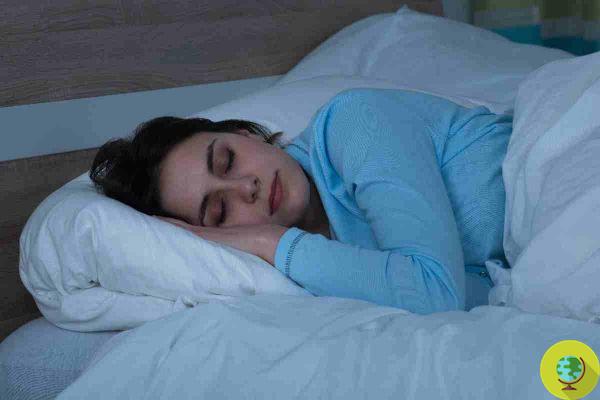
Women need a little more sleep than men, and according to science, there are biological factors behind this need.
Everyone needs and deserves a good night's sleep. But do some people really need more sleep than others? Science reveals that the women may need more sleep than men. Let's find out why, and what factors affect this need for more rest.
Index
How Much Sleep Do Women Need?
There is no specific number supported by research when it comes to how many hours of sleep women need compared to men. Adults of any sex need 7 or more hours of sleep a day, but when it comes to the differences, research has shown that women tend to sleep more than the men from 11 to 13 minutes.
Le sleep differences between men and women boil down to numerous behavioral and biological variables that change through the different stages of life. That said, nearly all studies on the subject mention the need for more research in this area.
Increased risk of sleep disturbances
A review showed that women's risk of suffer from insomnia is del 40% higher than men, which could lead them to sleep a little more in an attempt to make up for hours spent tossing and turning. Women also have a higher risk of developing the restless legs syndrome (RLS) andsleep apnea, both of which can affect sleep quality, causing you to need more sleep to feel refreshed.
The other factors that affect I'm:
- le hormonal fluctuations related to menstruation can make it difficult to get a good night's sleep, especially during the premenstrual phase.
- la pregnancy, as changes in hormone levels during different trimesters can cause fatigue, sleepiness, frequent urination (causing many night trips to the bathroom), trouble breathing.
- perimenopause and menopause, which is when hormonal fluctuations can cause symptoms such as hot flashes and night sweats, which can disturb sleep. Furthermore, the risk of developing sleep apnea also increases after menopause.
How much sleep do you need?
Le sleep needs change with age due to factors such as hormones, lifestyle habits, and medical conditions. These are general sleep guidelines for different age groups, regardless of gender:
- from birth to 3 months: 14 to 17 hours
- From 4 to 11 months: from 12 to 16 ore
- 1 to 2 years: 11 to 14 hours
- 3 to 5 years: 10 to 13 hours
- 6 to 12 years: 9 to 12 hours
- 13 to 18 years: 8 to 10 hours
- 18 to 64 years: 7 to 9 hours
- 65 years and over: 7 to 8 hours
Follow us on Telegram | Instagram | Facebook | TikTok | Youtube
On sleep disorders it could be of interest to:
- If you always wake up at this time of night it could be a sign of an emotional block (or a problem with the intestines).
- The secret to living longer is contained in this simple daily activity that protects you from the effects of time
- Predictive sleep: The way you sleep can be a wake-up call for high cholesterol
- 8 Reasons Sleeping On Your Back Can Solve Your Sleep Problems
- Sleep: Are you getting enough sleep? How to calculate when you should go to bed
- If you wake up tired in the morning, you may have had little REM sleep. Tips and tricks to increase it and feel rejuvenated
- How to live longer: this simple and free daily habit is the secret of longevity


























